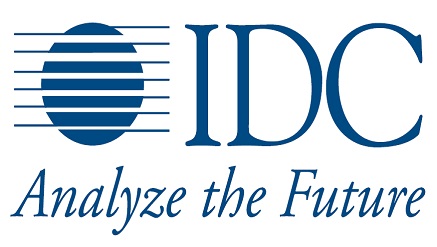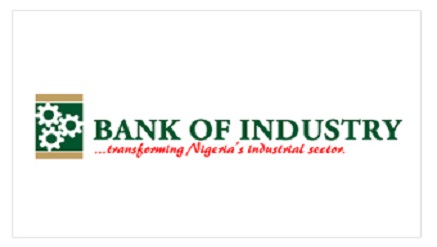E-Financial
Global Insurers to Spend $8.2b on Software, IT Services in 2015- IDC

IDC Financial Insights announced on Tuesday the availability of a new IDC MarketScape report, “IDC MarketScape: Worldwide Policy Administration Systems Vendor Assessment 2015”, (Document #AP251041), which evaluates the capabilities and business strategies of 10 vendors offering policy administration systems (PAS) to IT buyers in the global insurance arena.
The vendors featured in this report are Accenture, CSC, EXL Service, Fadata, Guidewire Software, Majesco, Oracle, Sapiens International, StoneRiver and SunGard.
The document provides a vendor-agnostic, informed investment guidance for insurers’ technology offices and their line-of-business buyers seeking to invest or replace their PAS platforms, while at the same time offering these specialist technology organizations further exposure to a wider insurance market.
Evaluation is based on a comprehensive framework and a set of parameters IDC Financial Insights expect to be most conducive for providing highly rated PAS platforms, together with the inclusion of buyers’ perception of overall value delivered by these vendor solutions.
Insurers oftentimes find themselves constrained by archaic and inflexible policy administration systems as they strategize to optimize client acquisition and retention, create new or modify existing products, enhance business processes and claims management efficiencies, react quickly to evolving market opportunities and simply fuel future growth.
Consequently, core replacement cycles are brewing and IDC Financial Insights projects the global insurance sector spending US$8.2 billion on software and IT services for policy administration in 2015, with this figure expanding on a three-year compound annual growth rate (CAGR) of 4.6% through to 2018.
The specific areas currently driving investments within the policy administration arena include rating and quoting (especially to enable online channels), coverage and issuance of policy, policy and contract maintenance, billing and premium invoicing, as well as premium renewals.
A shift in consumer preference towards a digital mode of interaction is also encouraging insurers to invest on platforms that can support omni-channel delivery services.
According to Li-May Chew, associate research director for IDC Financial Insights, “About 30% of projects keep within budgetary, time and scope requirements, and a meager 33% of these eventually realize complete business benefits. It is thus critical that insurers pick their technology partners wisely. Our MarketScape vendor assessment document offers guidance on the leading PAS vendors, and how these providers can fulfil insurers’ business goals and technology expectations.”
Positive trends observed across most of these vendors include aggressive investments for:
Upgrading features and functions
Raising deployment model flexibility and configurability
Provisioning integrated PAS software suites supporting out-of-the-box processing for several insurance lines
Genuine efforts to begin offering next generation technology solutions and services around mobile, Big Data, cloud and social
Incorporating customer feedback into future functional enhancements and product direction, and
Aiming to undertake strategic acquisitions to enhance insurance capabilities or forge global partner alliances to ensure adequate post-implementation support
Data from the report indicates that challenges are more organization-specific, though a few similar issues did surface.
These pertain to: A few administration systems running solutions on COBOL programming language more associated with legacy applications; some providers focusing too heavily on a niche area (e.g. specific customer types, or geographical jurisdictions with a couple being entirely U.S.-centric); confusion or distractions from management reshuffling or (what appears to be too) frequent changes in corporate strategy and direction; resource constraint for smaller-tiered specialist vendors that are expanding aggressively and unable to keep up with support services and perennial comment from customers that pricing (for initial installation and customization, and subsequent maintenance and support) could always be more attractive
IDC MarketScape criteria selection, weightings, and vendor scores represent well-researched IDC judgment about the market and specific vendors.
IDC analysts tailor the range of standard characteristics by which vendors are measured through structured discussions, surveys, and interviews with market leaders, participants and end users. Market weightings are based on user interviews, buyer surveys and the input of a review board of IDC experts in each market.
IDC analysts base individual vendor scores, and ultimately vendor positions within the IDC MarketScape, on detailed surveys and interviews with the vendors, publicly available information and end-user experiences in an effort to provide an accurate and consistent assessment of each vendor’s characteristics, behavior and capability.
E-Financial
CBN Expresses Concern Over Foreign Investments in Nigeria Fintechs

The Central Bank of Nigeria in its 2025 Fintech Policy Insight Report, has raised concern over Nigeria’s fintech sector heavily dependent on foreign investment, exposing it to swings in global markets.

The report said the sector has shown resilience despite global economic pressures, but warned that reliance on external capital leaves it vulnerable to market fluctuations.
It would be recalled that startups in the country raised $520m in equity funding in 2024, down from about $747m in 2019, when Nigeria captured roughly 37 per cent of all African startup investment.
This performance, amid significant global macroeconomic gyrations, underscores Nigeria’s position as a key hub for financial innovation. The sharp rise in interest rates in advanced economies during 2022 contributed to a slowdown in venture capital funding.
“These dynamics highlight the importance of developing domestic funding avenues, such as leveraging Nigeria’s capital markets, to reduce currency risk and sustain fintech growth,” the apex bank stated.
Olayemi Cardoso, CBN Governor, said Nigeria is undergoing a rapid and significant financial evolution. Over the past decade, the nation’s fintech landscape has grown from a handful of startups into one of Africa’s most vibrant innovation ecosystems.
“Even amid global economic headwinds, Nigerian fintech firms continued to attract investment and drive change. Today, with improved stability of our currency and domestic economy, it is clearer than ever that financial innovation can advance inclusion at scale,” the executive commented on the report.
In addition to funding, the central bank underscored Nigeria’s continued leadership in digital financial infrastructure. More than 25 per cent of all electronic transactions in Africa’s most populous nation are processed via real-time payment channels, with close to 11 billion transactions processed in 2024, up from five billion in 2022. The report described Nigeria’s instant payments platform, NIBSS NIP, as among the most mature and widely adopted globally.
The report also mentioned the need to strengthen system integrity and reputation, pointing to compliance reforms, anti-money laundering supervision, and consumer protection measures as key priorities for sustaining investor confidence.
By focusing on domestic funding, regulatory modernisation, and innovation infrastructure, the CBN aims to position Nigeria not only as a fintech front-runner but also as a rule-setter whose regulatory lessons are relevant to peer emerging and high-growth economies globally, the central bank said.
Stakeholders surveyed by the CBN also cited compliance costs as a significant challenge to innovation. According to the report, 87.5 per cent of respondents said that the cost of meeting regulatory and risk requirements significantly impacts their capacity to innovate, while delays in product approvals and regulatory timelines also remain major bottlenecks.
The report noted that 62.5 per cent of fintech firms plan to expand regionally, and there is strong support for regulatory pass-porting frameworks to enable compliant expansion into other African markets. However, the CBN warns that such cross-border growth requires a stable funding base and coordinated regulation.
E-Financial
UBA’s Easy and Instant Account Opening Thrills Returnee

After a few years abroad, I returned to Nigeria and faced a dilemma. Let me tell you all about it.

UBA
A few days ago, I was dragging my luggage through Murtala Muhammed International Airport. Everything felt bright and beautiful. Not necessarily in aesthetics, but in the vibrant colours, sounds, and energy all around. After three intensive years in the UK, I was finally back home. Ready for the hustle and bustle of Lagos life, and yes, the comfort of my parents’ home.
The plan was simple. Settle down and get my life on track. I’d sorted the job, and I had my person. But then came my dilemma. Money!. This doesn’t mean I was short of it or had too much of it. The real issue is where to actually keep and manage it in this country with daily dramatic happenings. With just two weeks left before I resumed at my new workplace, I had no time for long queues, endless paperwork, or the classic “Nigeria bank stress.” So, I needed an account, and I needed it fast.
So I turned to my best friend, Google, and typed, “Instant account opening in Nigeria.”
In less than a second, I was redirected to the United Bank for Africa instant account opening portal. A few taps later, and I had a fully functional account. Just like that. I could receive my funds, transfer my funds, and start building my financial life here again.
In less than a second, I was redirected to the United Bank for Africa instant account opening portal. A few taps later, and I had a fully functional account. Just like that. I could receive my funds, transfer my funds, and start building my financial life here again. Talk about ease, and this beautiful experience truly exemplified that definition
I was genuinely amazed. It felt too easy, almost suspiciously easy. But it was real, I mean, really soft like they were just thinking all about me while developing this new feature.
If you’re like me and pressed for time, avoiding unnecessary stress, or just ready to sort your finances without the hassle, consider this your sign.
UBA’s instant account opening is a game-changer. No queues to cut into your precious time. Just you and your phone, minutes away from being banked.
Get started here: https://aop.ubagroup.com
Trust me, if I could do it between unpacking and settling in, you can do it too. Your future self will thank you.
E-Financial
BOI Secures CBN Nod for Sharia Banking, Unlocks Ethical Funding Boom

Bank of Industry (BOI) has received Central Bank of Nigeria (CBN) approval to launch a Non-Interest Banking (NIB) Window, expanding ethical financing for underserved businesses nationwide.

BOI
The move positions BOI to mobilise Sharia-compliant funds, finance assets and raw materials without interest, and target MSMEs plus high-impact sectors previously sidelined by conventional loans.
Divisional Head of Public Relations, Theodora Amechi, said the window aligns BOI with social goals, boosting real economy support and sustainable industrial growth.
MD/CEO Dr. Olasupo Olusi hailed it as a “pivotal moment,” enabling the bank to serve faith-sensitive enterprises shunning riba-based loans.
Analysts see it as CBN’s vote of confidence in BOI’s governance, set to spur innovation and inclusive financing for Nigeria’s ethical business segments.
Established in 1959 as Nigeria’s top Development Finance Institution, BOI now strengthens its drive for broad-based economic transformation.

 E-Financial2 days ago
E-Financial2 days agoAlawuba Advocates Security, Bankable Projects, Infrastructure Development to Promote South-East Vision

 Telecom1 day ago
Telecom1 day agoNCC Committed to Regional Digital Integration – Maida

 E-Financial1 day ago
E-Financial1 day agoCBN Expresses Concern Over Foreign Investments in Nigeria Fintechs

 General News1 day ago
General News1 day agoIndigenous Firm Deploys 400,000 Smart Electricity Meters in 2025

 E-Financial1 day ago
E-Financial1 day agoBOI Secures CBN Nod for Sharia Banking, Unlocks Ethical Funding Boom

 Telecom1 day ago
Telecom1 day agoITU Top Director Visits NITDA, Boosts Nigeria’s Digital Literacy Push

 E-Financial1 day ago
E-Financial1 day agoUBA’s Easy and Instant Account Opening Thrills Returnee

 News1 day ago
News1 day agoEFInA Unveils Research Fellowship Programme to Deepen Financial Inclusion Impact



























